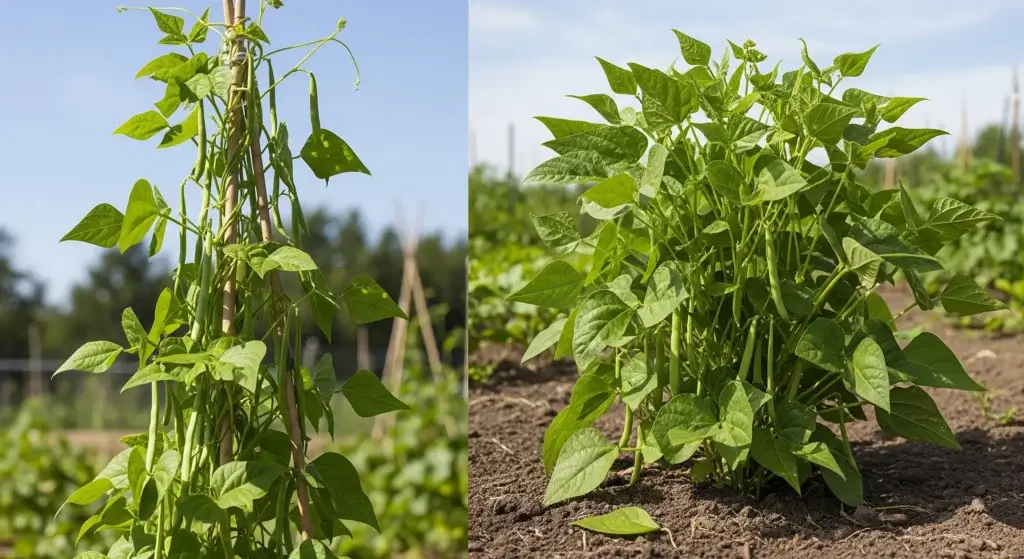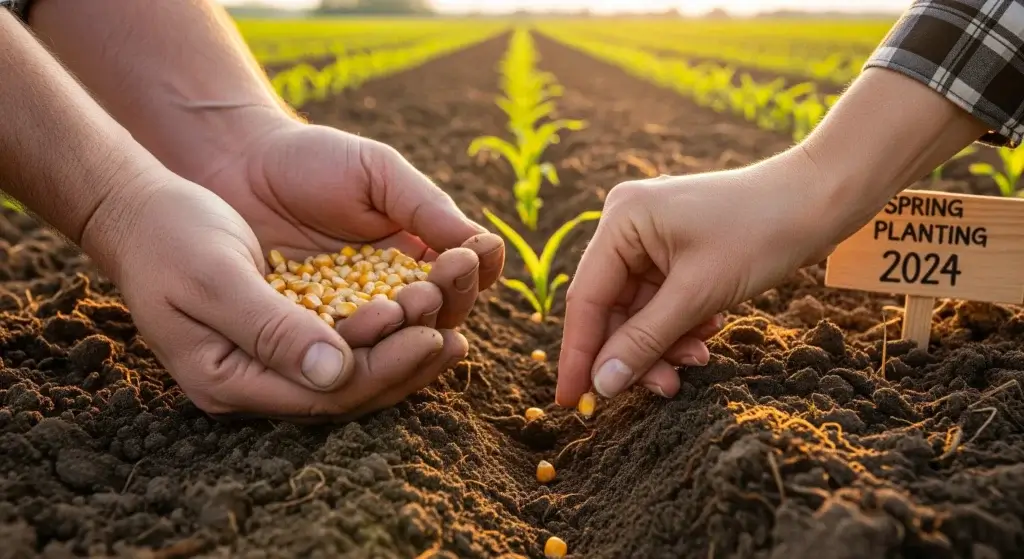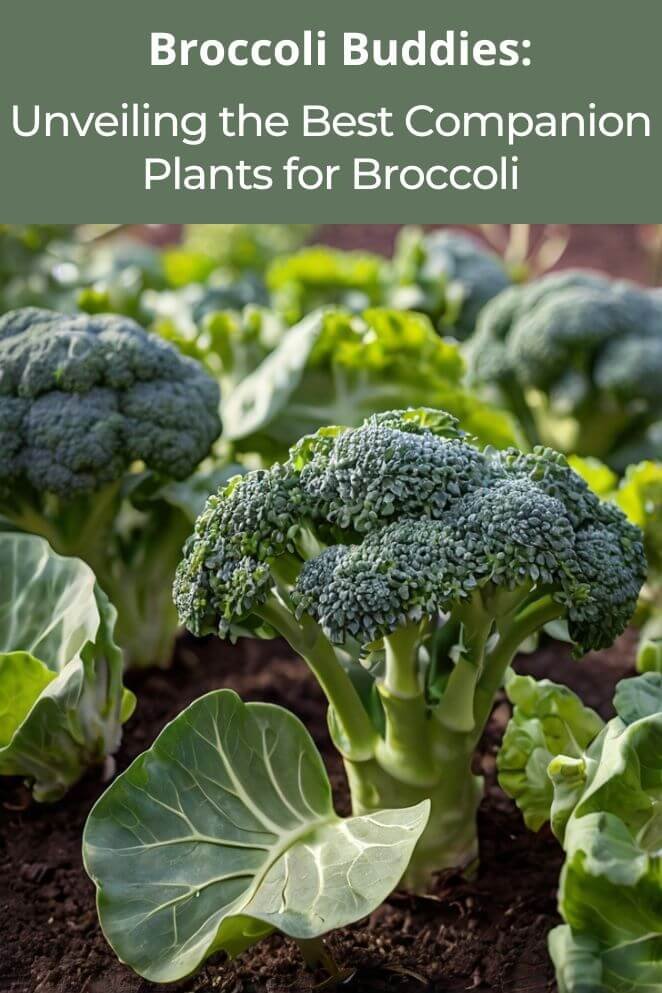
Growing broccoli in your garden can be incredibly rewarding.
This nutritious vegetable is packed with vitamins, minerals, and fiber, making it a favorite among health-conscious gardeners.
But did you know that companion planting can enhance broccoli growth and protect it from pests?
In this blog post, we’ll explore the benefits of companion planting, highlight the best companion plants for broccoli, and provide tips for a thriving garden.
Benefits of Companion Planting for Broccoli
Companion planting is the practice of growing different plants together to mutually benefit each other.
For broccoli, this can mean better growth, improved flavor, and natural pest control.
Here are some key benefits:
- Read also: Broccoli Care Mistakes: Master the Art of Growing Your Broccoli
- Read also: Extend Your Harvest: Tips for Growing Broccoli in Winter
Pest control
When you plant certain plants near broccoli, they can help keep away pests that often bother broccoli, like aphids and cabbage moths.
For example, plants like marigolds or mint have scents that bugs don’t like, so they stay away from your broccoli.
Improved pollination
Some companion plants attract bees and other helpful insects that pollinate flowers.
When these insects visit your garden, they help broccoli flowers turn into healthy broccoli heads.
This means more broccoli for you to enjoy!
Nutrient sharing
Plants like beans and peas (which are called legumes) can make the soil richer by adding nitrogen to it.
Nitrogen is like food for plants, so when broccoli grows near legumes, it gets extra nutrients that help it grow strong and healthy.
Efficient use of space
You can plant short plants that don’t need much space underneath broccoli plants.
This way, you use all the space in your garden effectively.
For example, lettuce or spinach can grow nicely under broccoli, making your garden more productive.
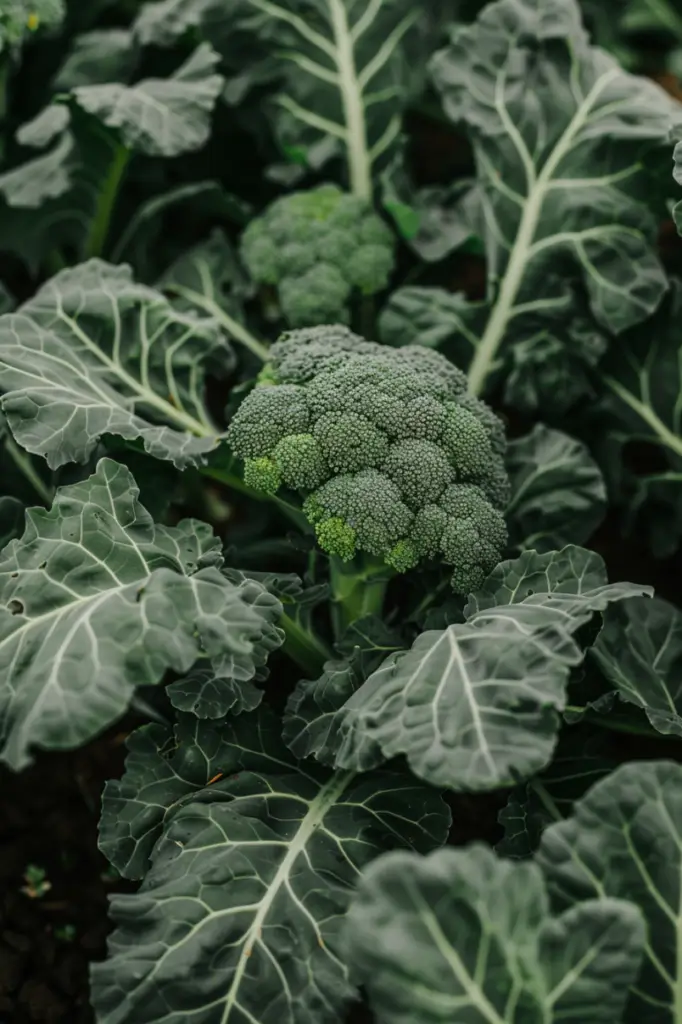
Best Companion Plants for Broccoli
Choosing the right companions for broccoli can make a significant difference in your garden’s productivity.
Here are some of the best companion plants for broccoli:
Pollinators
- Dill: Dill attracts beneficial insects like bees and hoverflies, which aid in pollination and help control pests.
- Borage: Borage is excellent for attracting bees and other pollinators, enhancing the overall health of your garden.
- Alyssum: This low-growing flower attracts pollinators and beneficial insects, making it a great companion for broccoli.
Pest control
- Rosemary: Rosemary’s strong scent deters many pests, including cabbage moths and aphids.
- Thyme: Thyme’s aromatic oils repel pests like cabbage worms and other insects harmful to broccoli.
- Nasturtiums: These vibrant flowers are great for repelling aphids and also act as a trap crop, drawing pests away from broccoli.
Nitrogen fixers
- Beans: Beans are legumes that fix nitrogen in the soil, enriching it and promoting better broccoli growth.
- Peas: Like beans, peas improve soil nitrogen levels, benefiting neighboring broccoli plants.
Space fillers
- Lettuce: Lettuce grows well in the shade of broccoli, utilizing the space efficiently without competing for nutrients.
- Spinach: Spinach is another low-growing plant that fits well under broccoli, making the most of your garden space.
- Radishes: Radishes grow quickly and can be harvested before broccoli matures, making them excellent space fillers.
Considerations for Companion Planting with Broccoli
While companion planting offers many benefits, there are some considerations to keep in mind:
Planting density
It’s important to plant your broccoli and companion plants with enough space between them.
Overcrowding can lead to competition for nutrients, sunlight, and space, which can stunt their growth.
Each plant needs room to grow and develop properly.
Watering needs
Different plants have different needs when it comes to water.
It’s best to group plants together that require similar amounts of water.
This way, you can water them evenly and make sure they all get the moisture they need.
Too much or too little water can stress plants and affect their health.
Soil type
Broccoli grows best in well-drained, fertile soil.
When choosing companion plants, look for ones that also thrive in similar soil conditions.
This ensures that all plants in your garden can access the nutrients and moisture they need from the soil.
Harvest timing
Consider the timing of when your companion plants and broccoli will be ready to harvest.
You don’t want to plant something that grows tall or has deep roots too close to your broccoli, as it could make it hard to harvest the broccoli later.
Plan your garden layout so that you can easily access and harvest your broccoli without disturbing the roots of other plants.

Tips for Companion Planting Broccoli
To make the most of companion planting with broccoli, follow these tips:
Plan your layout
Before you start planting, think about where each plant will go in your garden.
Make sure to space them out properly so they have enough room to grow without crowding each other.
Consider which companion plants will benefit your broccoli the most by improving soil quality or repelling pests.
Rotate crops
It’s a good idea to change where you plant your broccoli and companion plants each year.
This helps keep the soil healthy and reduces the chances of pests and diseases building up.
For example, if you grew broccoli in one spot last year, plant it in a different area this year to give the soil a break.
Monitor pests
Keep an eye on your plants regularly for any signs of pests, like chewed leaves or tiny insects.
Companion plants can help deter pests, but you may still need to take action if pests become a problem.
Use natural methods or treatments recommended by your local garden center or extension office.
Provide support
Some companion plants, such as peas or beans, may need support structures like trellises or stakes to grow upright.
Plan ahead and set up supports before planting so your plants have something to climb or lean on as they grow.
Mulch and water
Mulching around your plants helps keep the soil moist, reduces weed growth, and improves soil health over time.
Water your plants deeply and regularly, especially during dry periods, to ensure they get enough water to thrive.
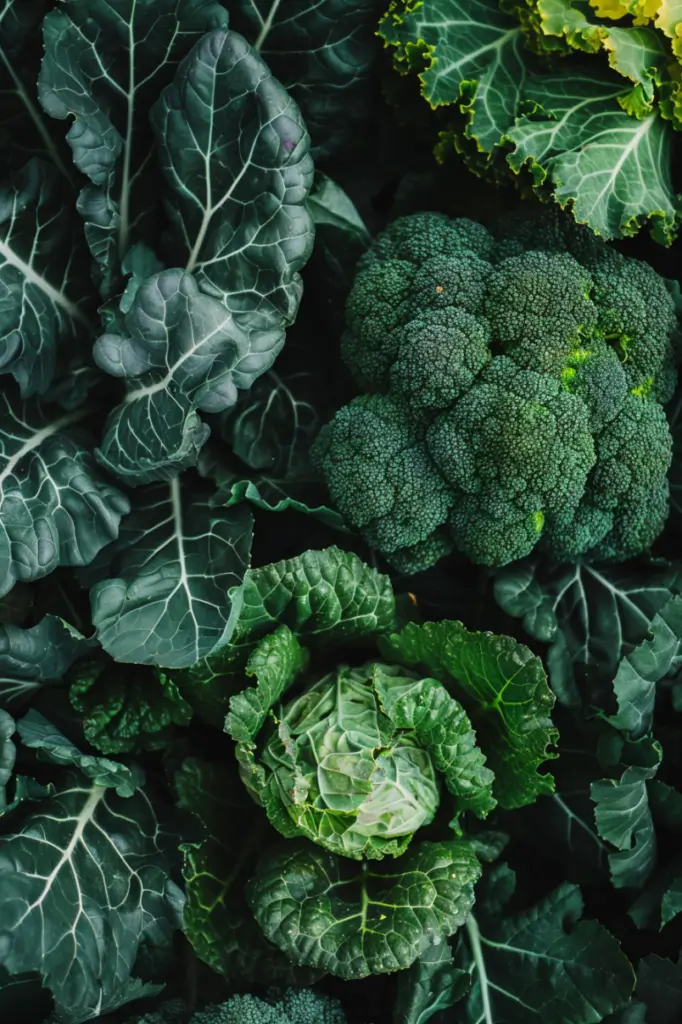
- Read also: Potted Perfection: Tips on Growing Broccoli in Containers
- Read also: The Ultimate Guide to Growing Thriving Broccoli in Pots
Conclusion
Companion planting is a fantastic way to enhance your broccoli’s growth and health while maximizing garden space.
By choosing the right companions, you can naturally deter pests, improve pollination, and enrich the soil.
With thoughtful planning and regular care, your garden will thrive, producing delicious, healthy broccoli and a variety of other vegetables.


